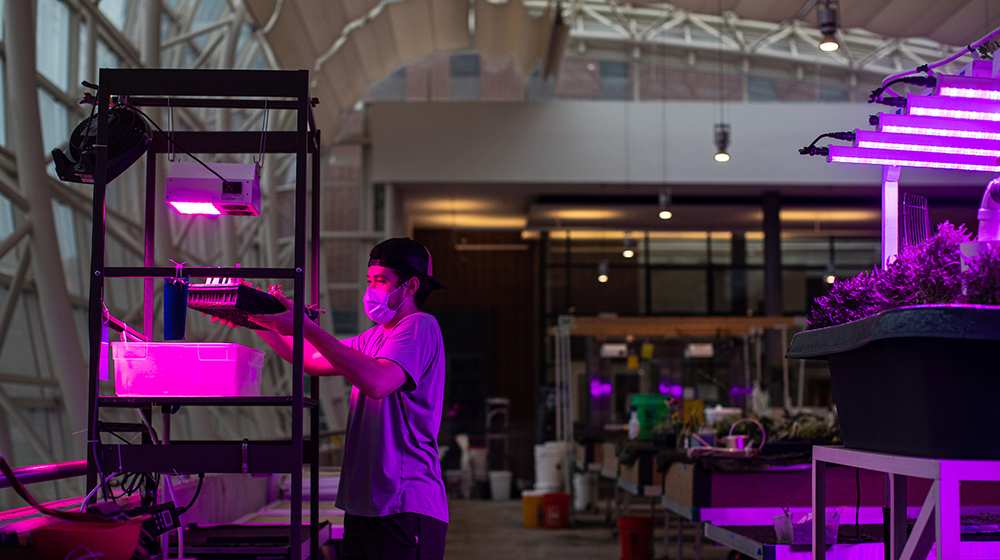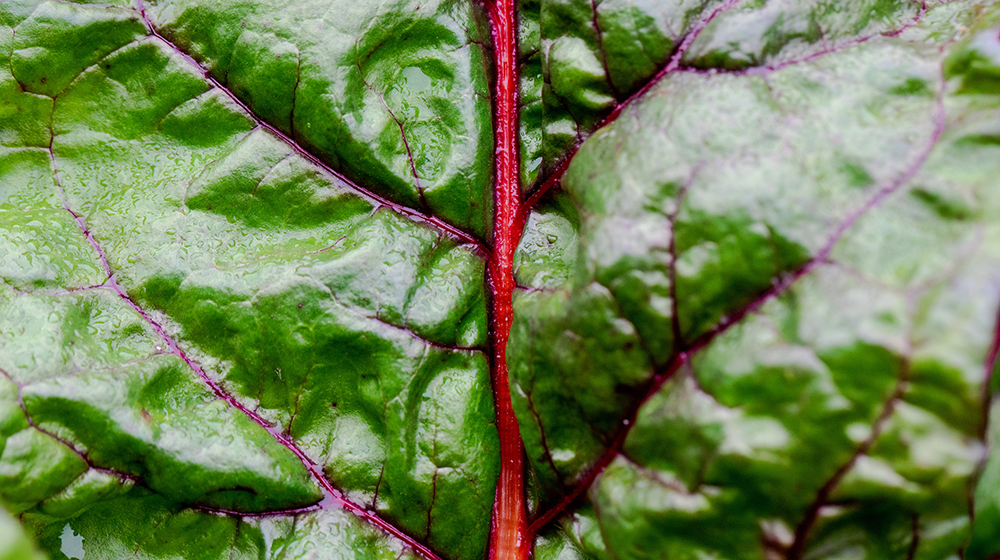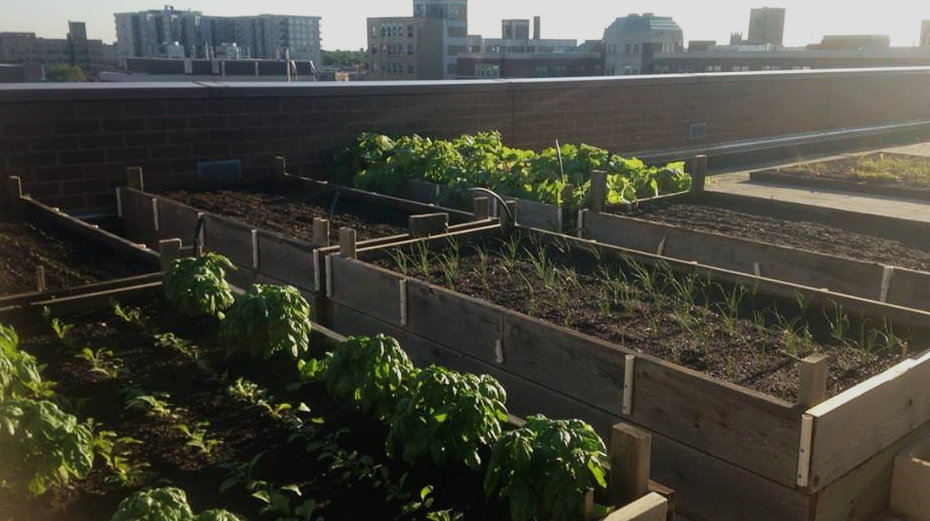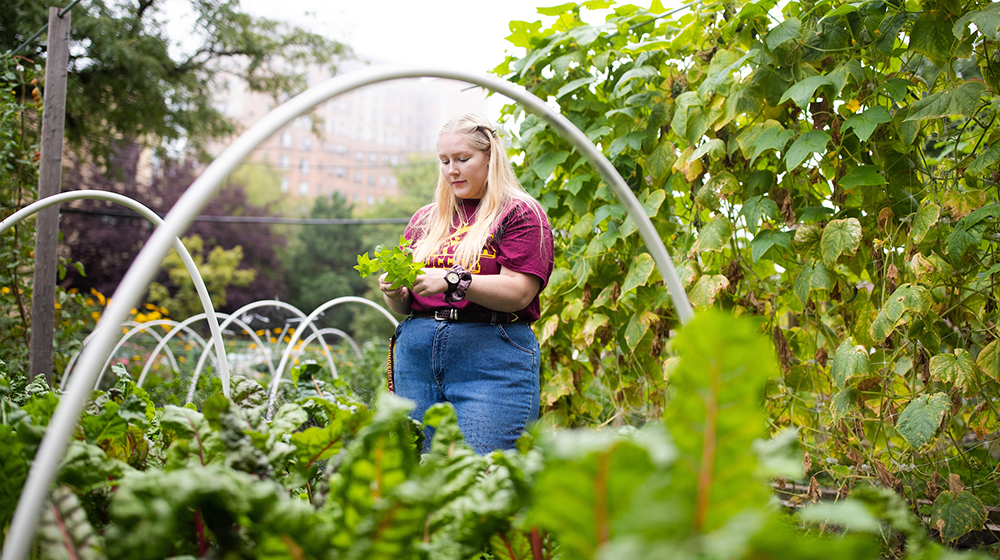Sustainable Food
The Urban Agriculture team has the privilege of caring for four sites on campus. These gardens are located in areas such as rooftops, terraces, and in-ground lots, allowing us to explore various methods of urban food production.
We also believe that access to fresh, healthy produce should be available to everyone, regardless of income level, race, and location. To address this, we distribute food to the Loyola Farmers Market, accept LINK benefits, and donate produce weekly to local food pantries serving those in need. The Loyola Farmers Market is located at the Loyola El stop and is open from June to October.

Greenhouse Lab
Constructed in 2013 within SES, the Greenhouse lab is a large glass structure contains 3,100 square feet of growing space, features rain-water harvesting, geothermal heating, aquaponics, plant production, and various class and student projects. Home of two aquaponics systems that allow fish and plants to grow in a recirculating system. This lab features a green wall for our vertical gardening experiments, grow beds with LED lights facilitate year-around class projects, student/faculty research, and experimental projects to support the SES curriculum. Integrated Pest Management (IPM) utilizes biological controls and safe methods to limit the growth of pest populations. Plant production space allows for in-house transplant and propagation projects and plant sales.

Mertz Terrace- The Victory Garden
Built in 2010 and located on the Mertz Dormitory Terrace, this garden features 15 raised beds and is currently used for the production of flowers and cut greens (kale, swiss chard). Flower varieties include Calendula, Cosmos, Zinnia, Celosia, and Sweet Pea. Kale varieties include Red Russian, Toscano, Green Afro, and Starbor. This flower and greens garden offers an aesthetic value for Mertz patrons and provides food and habitat for local pollinator populations.

Quinlan Rooftop Garden
Built in 2009 by students in a Solutions to Environmental Problems: Food Systems course these gardens are located on the rooftop of the Quinlan Life Science and feature 11 raised beds and six medium to large pots. Vegetable and flower garden that produces root crops such as radishes and carrots, leaf crops such as arugula and lettuce, and squash such as zucchini and summer squash. A composting bin on the rooftop minimizes waste output and provides recycled fertility. Row covers/hoops are used to extend the growing season.

Winthrop Garden
Located at the corner of Winthrop and Loyola this garden was originally built in 2010, with an expansion project in the summer of 2014 and includes 30 raised beds. Winthrop Garden is used for growing a variety of vegetables such as kale, swiss chard, carrots, potatoes, and eggplant. The garden also includes fruiting crops like tomatoes or peppers, and herbs such as basil, mint, chives, and sage. The border is lined with brambles such as black currants and raspberries on the east side of the fence. This garden is the home of two beehives, a Warre and Langstroth type. The creation of these beehives is a result of a STEP Food Systems project taken on by students in the Spring of 2014. More projects are underway to provide a safe habitat for local bees, wasps, and other beneficial pollinator insects. The shade garden allows us to experiment with shade tolerant varieties of edible and native plants. The composting system provides recycled fertility and limits garden waste and a rain barrel catchment system reduces water use.
The Urban Agriculture team has the privilege of caring for four sites on campus. These gardens are located in areas such as rooftops, terraces, and in-ground lots, allowing us to explore various methods of urban food production.
We also believe that access to fresh, healthy produce should be available to everyone, regardless of income level, race, and location. To address this, we distribute food to the Loyola Farmers Market, accept LINK benefits, and donate produce weekly to local food pantries serving those in need. The Loyola Farmers Market is located at the Loyola El stop and is open from June to October.
